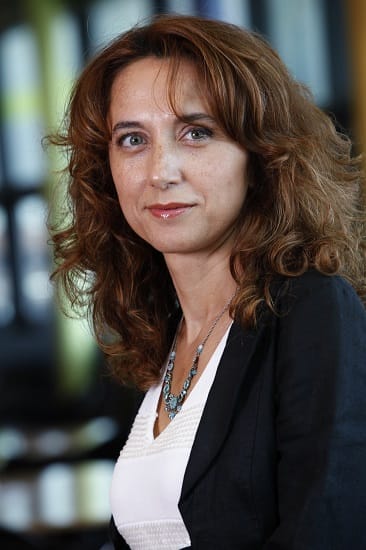Maria Grazia Pau has more than 15 years of experience in vaccine research and is currently working at Janssen Vaccines (formerly Crucell) as a team leader in compound development. Maria is working to develop several vaccines, including vaccine candidates for different types of Filoviruses, such as Ebola and Marburg. She shares with us the current progress of the development of the Ebola vaccine.
From antigen to vaccine
Maria Pau: “Different antigens for the Ebola vaccine were evaluated in collaboration with the NIH (National Institute of Health, US). The antigens are based on the glycoprotein of the Ebola virus; the wild type (WT), as well as mutated versions of the glycoprotein, were tested. Preclinical studies in non-human primates showed that the vector carrying the WT glycoprotein gave the most potent immune response and protective efficacy. Additionally the WT glycoprotein and the mutated glycoproteins had a similar, acceptable, toxicity profile. Initially, we developed a vector to deliver the antigens in human cells based on the adenovirus-vector serotype 5 (Ad5). Later on, still in collaboration with the NIH, we switched from serotype 5 to an alternative serotype. This was largely driven by the fact that anti-Ad5 immunity is highly prevalent in humans. Many of us have high levels of antibodies against Ad5, in developing as well as in developed countries. The potency of the vaccine was affected when high levels of these antibodies were present. Therefore, we started looking for other, more rare serotypes such as adenovirus type 26 (Ad26) and adenovirus type 35 (Ad35). The best results were obtained with Ad26 when used as a prime and boosted with Ad35. One year ago, we evaluated an alternative heterologous prime-boost regimen with our Ad26 vector and the MVA (modified vaccine Ankara) vector from Bavarian Nordic (Denmark). This heterologous prime-boost is now being used in the clinical trials in Janssen’s accelerated Ebola program.”We are prepared!
Maria Pau: “The epidemic is unfortunately not completely over, but the incidence is decreasing. It is difficult right now to start an efficacy study to prove that the vaccine works in the field, but we will remain being vigilant.We don’t want to be caught by surprise again if there is another recurrence of the epidemic!We are already performing phase I and phase II studies, aimed at expanding the safety database. We want to confirm in large numbers that the vaccines are safe and that the level and magnitude of the immune response is as good in phase II studies as in phase I studies. As part of Janssen’s accelerated Ebola program, the different trials run in parallel. This is unprecedented and a unique situation. In parallel we have scaled up our manufacturing and have the doses prepared for a large clinical study if needed. We are doing everything we can to prevent a new large outbreak.”
Will Africa be able to afford the vaccine?
Gavi, the Vaccine Alliance has committed to provide up to 300 million dollars to purchase 12 million vaccines. That number of vaccines can cover a big part of the population of Liberia, Sierra Leone and Guinea. Maria Pau: “When working on the production of vaccines, you also must take into consideration the cost of the product, and ways to decrease the costs. However, for this emergency, we have not yet reviewed the pricing of the product. Back in October 2014, when the outbreak was trending the wrong direction, Janssen made an upfront commitment of over 200 million dollars.” Merck and GSK are the other main developers of an Ebola vaccine. The biggest difference is that they use single dose immunization vaccines and Janssen’s vaccine consists of a primer and booster about 4 to 8 weeks apart. Maria Pau: “We have been looking at our immunogenicity profile. We believe that our approach of two immunization steps may prolong and potentiate the immune response. This is important, as we’ve seen that an epidemic can last over a year. However, we will have to confirm this with more clinical data.”Eradicating Ebola will be difficult, but we want to make sure that an outbreak, of the same scale as the one which occurred last year, cannot happen again.Note: on July 31st, after this interview took place, the positive efficacy data from the Merck Vaccine candidate was published in the scientific journal Lancet.


